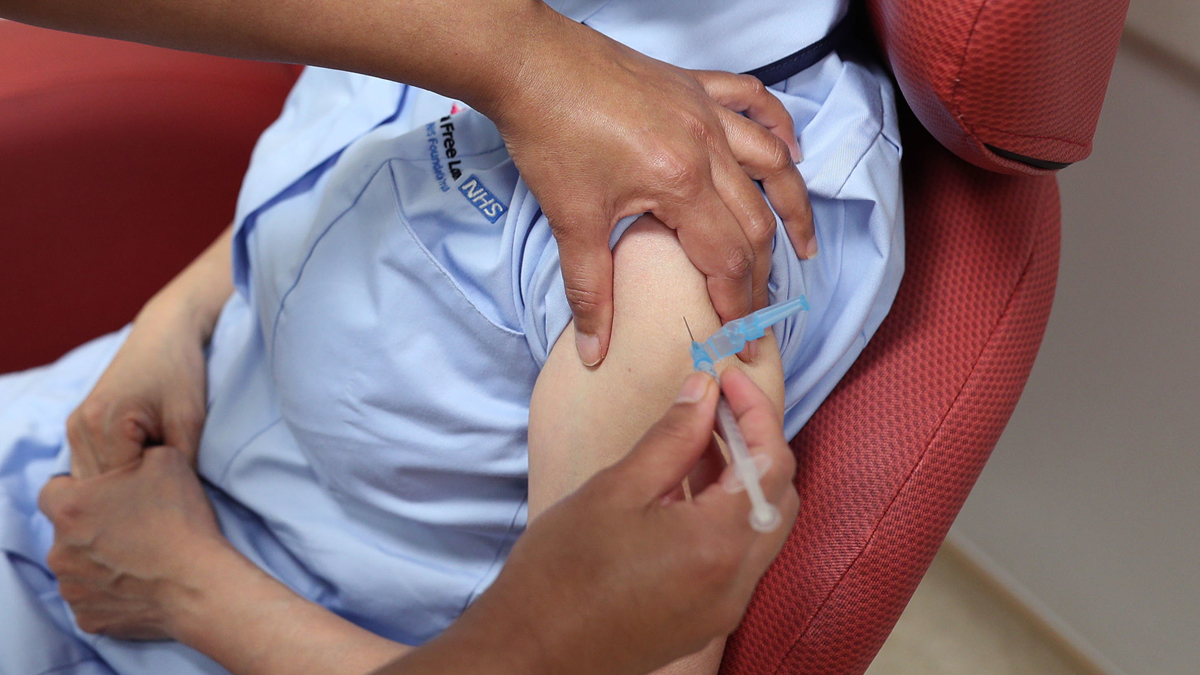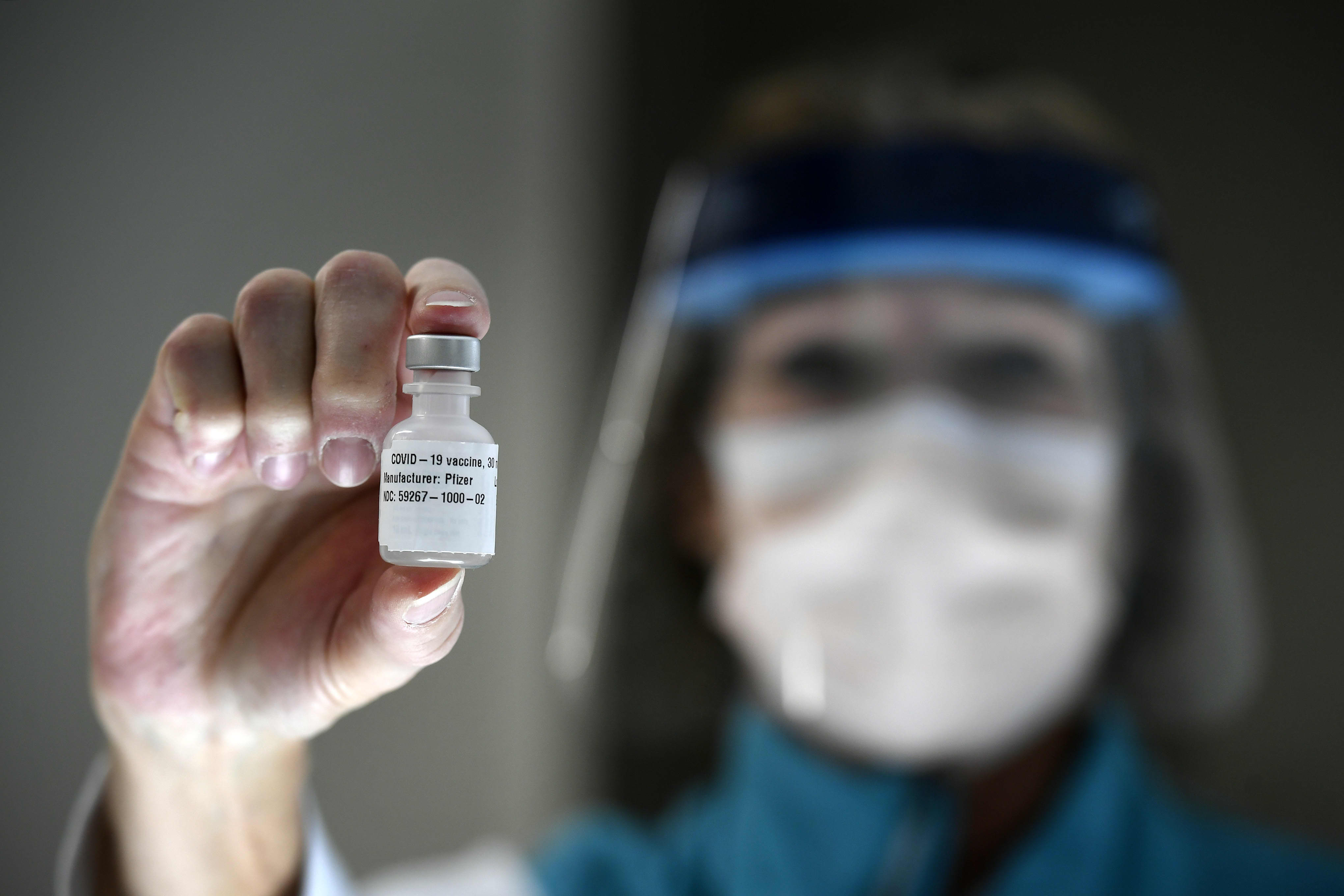As chair-person of California’s COVID-19 Scientific Safety Review Workgroup, Dr. Arthur Reingold and his team of health experts are tasked with double checking the work of the FDA and CDC and either assuring residents that the new vaccines are safe or rejecting the new drugs if they find a problem.
Three other states, Washington, Oregon and Nevada, have joined the safety review.
As public confidence in federal agencies has eroded during the pandemic, states are calling for independent evaluations by impartial health experts.
Dr. Reingold, who is Head of Epidemiology and Biostatistics at UC Berkeley, has worked on prevention and control of infectious diseases for over 40 years. Dr. Reingold acknowledged in his interview with NBC Bay Area’s Investigative Unit that this new and unprecedented state review process could backfire if his committee disagrees with the federal agencies.
View a full Q&A transcript of an interview the Investigative Unit had with Dr. Reingold below.
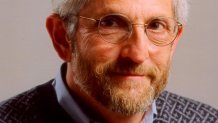
What will your committee do and what's your role as chair?
Dr Arthur Reingold: My role as chair to begin with is to lead a very experienced expert group of people from a variety of institutions in the state of California and now joined by experts from three other Western states, Washington, Oregon and Nevada. We've already looked at the safety and immunogenicity data from the phase one and phase two studies of the Pfizer vaccine and the Moderna vaccine.
Immunogenicity: relating to or producing an immune response.
Phase 1 studies: involve a small number of healthy adults. Varying levels of proposed vaccine injected to see if it produces an immune response and sickness.
Phase 2 studies: include a wider group of people and study various schedules and doses.
Phase 3 studies: can include tens of thousands of people, tested to see if the vaccine not only produces an immune response but also works against the disease in question.
Dr Arthur Reingold: We expect very soon to be able to look at the data from what's called the Phase three studies, looking at efficacy and also safety. And we also will be watching, if you will, be the meetings of the federal advisory committees, the advisory committee to the FDA and the advisory committee to the CDC So we'll have access to all of those discussions and the data presented there. And we expect to be able to vet that process quite thoroughly and quickly. And we hope to be in a position to give a thumbs up, if you will, that things look good. But obviously we have to wait and see what type of information is presented in those committee meetings about the safety and efficacy of the vaccines.
Will this add extra time before folks in Nevada or in California or Washington and Oregon can get the vaccine after it's been approved by the FDA and the CDC?
Dr Art Reingold: The quick answer is no. We are very sensitive to the concern that we might delay introduction to the availability of the vaccine into our states, which we do not want to do on the assumption that it shows itself to be safe and effective. So, our schedule is set to match as closely as possible the schedules of the advisory groups at the federal level. So, there will be virtually no delay. And of course, even once the U.S., FDA and HIPAA make their recommendations, the vaccine does need to get on planes. It does need to be shipped and distributed. And that process is certainly going to take a day or two. So, we don't expect to introduce additional delay with regard to the citizens of our states and their access to the vaccines once we've had a chance to look at the processes and look at the data.
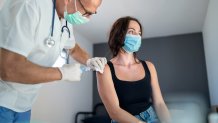
When you say look at the processes and the data, do you mean all the new data or at what's already been reviewed by the CDC and FDA?
Dr Art Reingold: The data are presented in great detail to the FDA advisory committee and to the CDC advisory committee. And we'll be looking at those very, very detailed presentations, In fact, on our expert group, we have people who either have served or are currently serving on the FDA and CDC advisory committee. We cannot replicate what a staff of dozens of FDA experts do, going over tens of thousands of pages of data provided by the company. We're not in a position to do that, but we are in a position to look very carefully at what is summarized in great detail by staff at the FDA, the questions asked by people on the advisory committees, and to look at those data as they're presented. But I should be clear. If it was a question of going back through tens of thousands of pages of data from the company, A. we really don't have the staff to do that. And that process would in fact then delay things by weeks. So that's not what we plan to do.
What would it take for your commission to say, "no, we want to put a halt to this?" In other words, are you there just to rubber stamp what the feds have done or are you seriously looking at using an independent separate set of eyes to make sure that this vaccine is safe for the folks here in the Western United States?
Dr Art Reingold: Well, I would put it in the latter category. You know, as I've said, we have in California and the other Western states are replete with world renowned experts on vaccine safety and vaccine efficacy studies. People who served on these committees, since we don't have a lack of experts who know how to look at these data, to watch the discussion that unfolds. I would not consider what we're doing a rubber stamp. We're going to look very carefully and listen very carefully and see if, in our independent judgment, anything is not going the way it should go. But you know, I should also say that I know the people and these committees. I know that they are independent, and I expect them to do a first-rate job. So, it's my hope and expectation that we will be able to reaffirm what their decisions are.
Is it fair to say this is an extra level of safety that Gov. Newsom and other governors in these Western states want?
Dr Art Reingold: Yes, I think I think unfortunately, over the last six to eight months, COVID and the pandemic and some of the decisions that have been made at the federal level, the perception certainly is that they've been influenced by political considerations and that that has made people concerned. You just have to read the letters to the editor of newspapers to see people saying flat out that they don't trust the federal government, you know, to be objective and independent about this. Now, as I said, I fully trust the experts on these advisory committees and working in FDA and CDC. But we're hoping that an extra level of review by people who do not work for the federal government can be reassuring, assuming the data support this - to people and make them more comfortable with the notion of getting the COVID vaccine, because having a vaccine doesn't help us at all if people don't take it. So, we're really trying, and I think the governors of these states just want to provide an extra level of reassurance to their citizens.
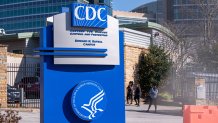
Has this ever been done before to have states review the process by the feds?
Dr Art Reingold So to my knowledge, with regard to drugs and vaccines, the answer is no. So, if there is a prior example, I don't know of it. But I do want to go back to something you said about the speed with which these vaccines are being developed and tested. So, there's no question that going from the sequence of the virus in February to having a potentially licensed vaccine in December is unprecedented. And in fact, some of the technology being used for some of these vaccines is novel. I can understand that people have gotten the impression, particularly the name like Operation Warp Speed, that perhaps corners have been cut. But I would argue that the additional speed really came with the initial science, if you will, of getting the sequence of the virus and producing what we think are going to be safe and effective vaccines.
But the trials themselves, the studies in which people are injected with the vaccines, the immune response, are studied now. The clinical outcomes are studied, the safety is examined. Those have actually not been short cut with regard to how they've been done. and we'll understand a lot about the short-term safety, by which I mean safety in the first several months following immunization, so I think people may have a misimpression that even those phases were sped up to a point where corners have been cut. And I really don't think that's a fair way to characterize how the trials were done.
Is this the way all vaccines are going to be approved going forward? Or is this a special case? What if Colorado says no, but California says yes?
Dr Art Reingold So we are also not only very sensitive to the need for us to not introduce additional delay of introduction of any vaccines that are judged to be safe and effective but we are also very aware of this other issue of, you know, not wanting to undermine groups of experts, independent experts on these advisory committees who are working in these federal agencies. And that's why said earlier. I personally have full confidence that those people, because I know many of them, are going to do the right thing and do it in an excellent manner. So, at the same time, you're right, we don't want to undermine those agencies in their decision making. And frankly, I'd like to hope that this will be a one off with regard to COVID-19 and that will revert to the situation we've always had in place, which is that, you know, once a vaccine is judged safe and effective by the ACIP*** and the U.S. FDA, that that will suffice for all 50 states and the territories and to use the vaccine and for people to feel comfortable accepting the vaccine. So, I'm hoping this is not a precedent.
Does that put additional pressure on your committee to just rubber stamp approval or do you feel comfortable your committee is going to look with an independent and credible eye?
Dr Art Reingold: So I think, first of all, the good news is that the people on our committee and not only are experts, but many of us work for organizations where, frankly, the politics are completely irrelevant. One of the advantages of having tenure as a professor at the University of California, Berkeley or Stanford or UCLA or wherever is that they can't fire me whenever I say politically or whatever political stand I take. So I don't think anybody on our committee is worried about the politics of, you know, that somehow if we said the wrong thing, you know, it's not quite the same as if you work for a federal agency and you say something that goes against what higher ups in the agency say, where your job could be at risk. My job won't be at risk no matter what I say and I'm pretty comfortable about that. So I don't think anyone on the committee has concerns about, you know, the politics of what they say. But I do think you are correct. We would we would have to be powerfully moved that there's something wrong with the process for us to say something different than what the FDA and CDC are saying, because we would be worried about the kind of precedent and confusion that that would lead to.
Going back one step - what will your team be doing to make sure this vaccine is safe?
Dr Art Reingold: Well, of course, you know, as I said, we've already looked at the safety data from the phase one and phase two studies. And what they basically show is that, similar to influenza vaccine, for example, or the zoster vaccine in adults, many vaccinees will have a sore arm or a headache or a bit of a fever or a little malaise or fatigue for a couple of days. And that's not surprising. It does not appear that those are unusually frequent compared to other vaccines we use. And the much bigger phase three studies were the data about to be released with regard to safety. We'll be looking carefully at the safety data and not only overall, but within particular groups of different age groups. For example, some people have expressed a concern that perhaps the safety profile will be different in people of different racial and ethnic groups.
We will look at those types of subgroups at the same time to reassure people that for all the vaccines we give people on a regular basis, there's really no evidence of racial and ethnic differences in the safety profiles of any vaccine I know of. So, we will look to the best of our ability, given how many people in different groups are in these studies. But you know, we are hopeful that these vaccines are going to prove to be safe in the short term.
But I also think people need to understand, and this is very important, that whenever we've released a new vaccine, when people say they want long term safety data, they want to know whether the vaccine will do something bad to them five years later - that's a completely unrealistic and unattainable standard for a variety of reasons. And if that were the standard, we wouldn't have had the vaccine at eradicated smallpox. We wouldn't have the vaccine that has almost eradicated polio, has reduced mortality for measles and all these other diseases.
So, my point is we will know a lot about safety in the short term, but we have an obligation once the vaccine is in use to continue to study both the effectiveness and the safety, the duration of protection, a whole host of other things. And I know for a fact that the CDC and FDA and others are already basically setting up the infrastructure for all of those studies. In some cases, using existing infrastructure institutions in California are going to be at the forefront of some of those studies because of the infrastructure that's in place.
So, we will continue to look at monitor and check on safety while the vaccine is being given to people. And I think people should be reassured that we're not just saying 'this looks good!" You know, "we'll give it to a bunch of people and hope for the best." That's not the plan.
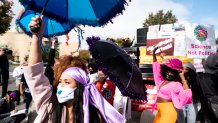
What about the concerns of anti-vaccination groups and people who are scared? Address those concerns going forward.
Dr Art Reingold: So, I can fully understand the why it seems reasonable to people to question how do we know that that five or 10 years later, the vaccine might not cause some kind of unexpected harm that they want that kind of reassurance? But I would make several points. First of all, we really don't have a biologically plausible basis for thinking that five or 10 or 20 years later, a vaccine we give you today is going to cause some disease. So, I suppose you could speculate that might happen, but there's really no biological based hypothesis related to that - that seems reasonable.
But in addition, if that were truly what you demanded to know what happens to people 10 or 20 years after they got a vaccine, before we start giving it to large numbers of people, that would be your standard, we fundamentally would not have any vaccines of any kind against anything. And I could go on to great lengths for why that's a completely impractical standard. So, we study safety in the short term during trials.
Once we think the vaccine is safe and effective and are giving it to larger numbers of people in the real world, we are we assiduously study what are called signals adverse events following immunization. If there appears to be a problem that's followed up very quickly and those studies are already well designed and pretty much in place. So, we don't just start giving the vaccine to millions of people and go home. We really do very, very carefully monitor safety for years to come.

